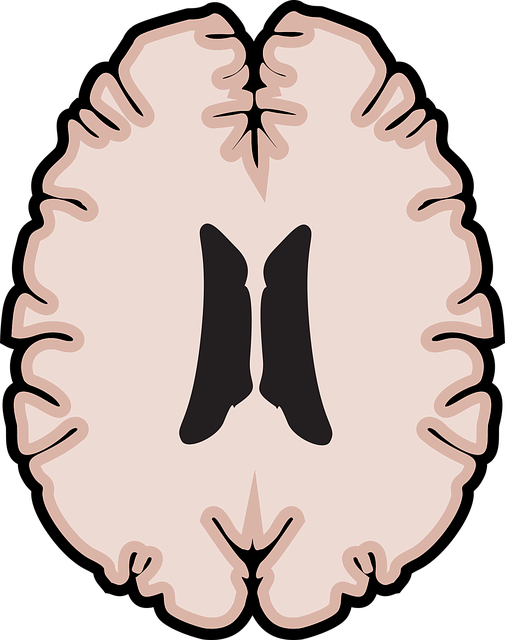Risk Management Planning for Mental Health Professionals: Lessons from Denver Dissociative Disorder Therapy
Denver dissociative disorder therapy centers offer specialized care for individuals with conditions…….
In the complex landscape of mental health treatment, Denver Dissociative Disorder Therapy (DDT) emerges as a specialized approach designed to address a unique set of challenges. This comprehensive therapy aims to help individuals grappling with dissociative disorders, offering a path towards healing and improved quality of life. The article delves into the intricacies of DDT, exploring its definition, global reach, economic implications, technological integrations, regulatory frameworks, and the impact it has on those it serves. By examining these aspects, we gain a holistic understanding of how DDT is reshaping mental health care and transforming lives.
Definition: Denver Dissociative Disorder Therapy (DDT) is an evidence-based therapeutic intervention tailored for individuals with dissociative disorders. This includes conditions such as Dissociative Identity Disorder (DID), Dissociative Amnesia, and other related mental health challenges characterized by disruptions in consciousness, memory, and identity. DDT integrates various psychological techniques to help patients regain a sense of self, manage symptoms, and improve overall functioning.
Core Components:
Historical Context: The roots of DDT can be traced back to the late 20th century when researchers and clinicians began to recognize the unique needs of individuals with dissociative disorders. Early approaches were largely exploratory, with various therapeutic modalities being adapted to address these complex conditions. Over time, the field evolved, leading to the development of more structured and evidence-based treatments like DDT. The name “Denver” is associated with this therapy due to the pioneering work of Denver-based mental health professionals who contributed significantly to its formulation.
DDT has transcended geographical boundaries, gaining recognition and adoption worldwide. Its impact can be observed across diverse regions, each contributing to and shaping its global trajectory:
| Region | Trends/Impact |
|---|---|
| North America | Leading in DDT research and practice, the United States and Canada have seen increased access to specialized treatment centers offering DDT. The high prevalence of dissociative disorders in these regions has driven demand for evidence-based solutions. |
| Europe | Many European countries have integrated DDT into their mental health systems, with Germany and the UK being notable for their extensive training programs and clinical guidelines for therapists. |
| Asia Pacific | Growing interest in DDT is evident in Japan, Australia, and several Southeast Asian nations. Cultural adaptations of the therapy are underway to suit regional contexts while maintaining its core principles. |
| Middle East & Africa | While still in the early stages, DDT is gaining traction in select countries, addressing unique cultural and historical factors contributing to dissociative disorders in these regions. |
The economic implications of Denver Dissociative Disorder Therapy are multifaceted:
Technology plays a pivotal role in modernizing Denver Dissociative Disorder Therapy:
Regulatory frameworks significantly influence the practice of Denver Dissociative Disorder Therapy:
Despite its potential, DDT faces several challenges:
Proposed Solutions: To overcome these challenges, collaborative efforts between researchers, clinicians, policymakers, and community organizations are crucial. Increasing public awareness, implementing training programs for therapists, developing cultural guidelines, and investing in research can collectively enhance the accessibility and effectiveness of DDT.
Case Study 1: Sarah’s Journey to Recovery
Sarah, a 27-year-old woman, presented with symptoms of DID, including frequent blackouts and altered states of consciousness. Through DDT, she embarked on a journey of self-discovery. The therapy helped her identify and integrate the different aspects of her personality, leading to improved memory recall and a stronger sense of identity. Over time, Sarah regained control over her life, making significant strides in her personal and professional endeavors. This case illustrates how DDT can empower individuals to reclaim their lives from the shadows of dissociative disorders.
Case Study 2: The Power of EMDR and CBT Integration
John, a veteran struggling with PTSD and DID, found relief through a combination of Eye Movement Desensitization and Reprocessing (EMDR) and CBT within the DDT framework. The EMDR sessions helped him process traumatic memories, while CBT equipped him with coping strategies for everyday challenges. This integrated approach led to reduced symptom severity and improved overall functioning, allowing John to reconnect with his family and pursue hobbies he had previously abandoned.
The future of Denver Dissociative Disorder Therapy is promising, with several growth areas and emerging trends:
Denver Dissociative Disorder Therapy represents a significant milestone in mental health care, offering hope and healing to those affected by dissociative disorders. By integrating advanced technologies, evidence-based practices, and cultural sensitivity, DDT is transforming lives and challenging traditional therapeutic boundaries. As the global community recognizes its impact, continued support, research, and collaboration will be essential to unlock the full potential of this transformative therapy.
Q: What makes Denver Dissociative Disorder Therapy unique?
A: DDT combines various therapeutic techniques tailored specifically for dissociative disorders, focusing on identity restoration, memory reconstruction, and trauma processing.
Q: Who can benefit from DDT?
A: Individuals diagnosed with dissociative disorders, such as DID, Dissociative Amnesia, or other related conditions, can find relief and improvement through DDT.
Q: How does DDT differ from other forms of therapy?
A: DDT is specialized for dissociative disorders, addressing unique challenges like fragmented identity and memory gaps. It integrates multiple therapeutic modalities in a structured manner.
Q: Is DDT covered by insurance?
A: Insurance coverage varies; some policies include DDT under mental health benefits, while others may require out-of-pocket expenses. Checking with your provider is essential for understanding coverage.
Q: Can DDT help with co-occurring disorders?
A: Yes, DDT can effectively manage co-occurring conditions like depression, anxiety, or substance use disorders, providing comprehensive care for individuals with complex mental health needs.

Denver dissociative disorder therapy centers offer specialized care for individuals with conditions…….